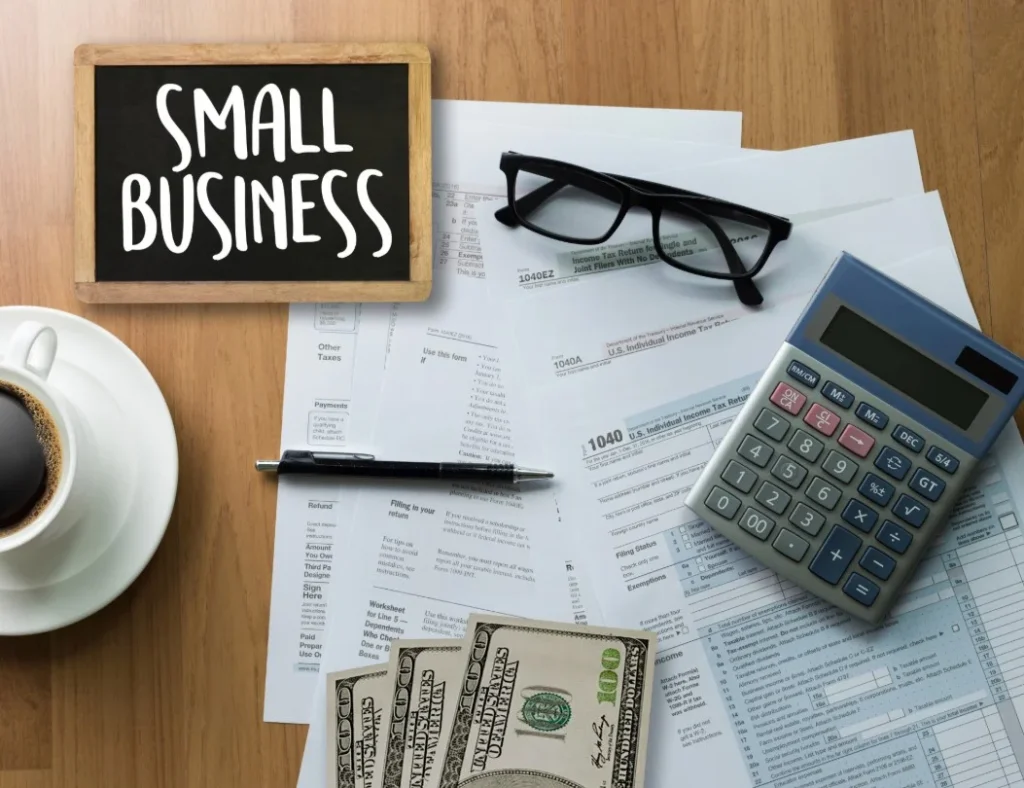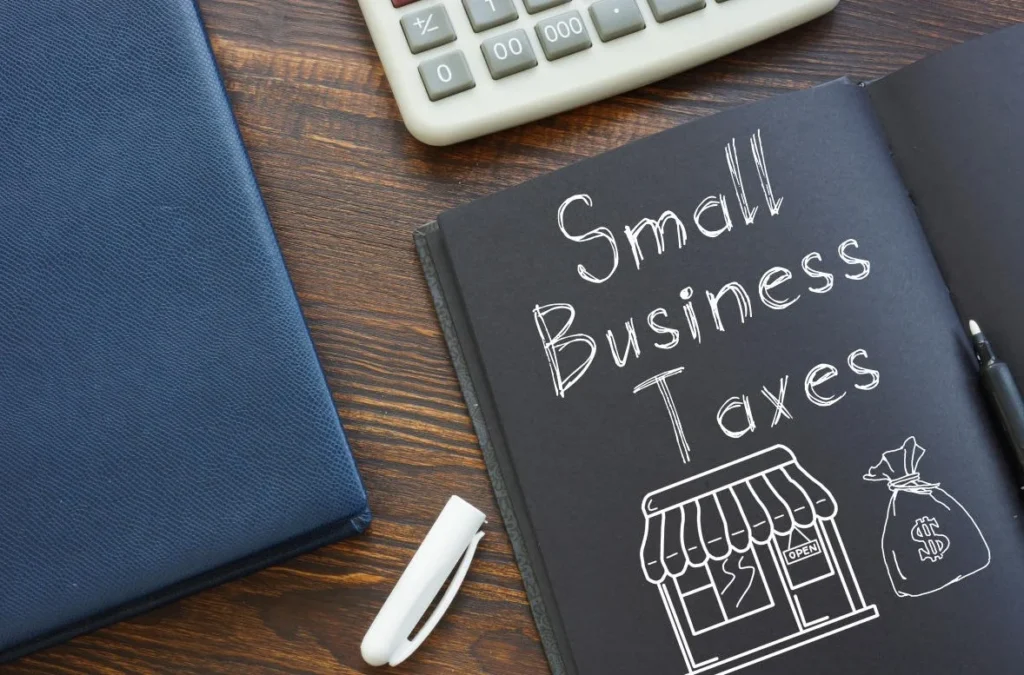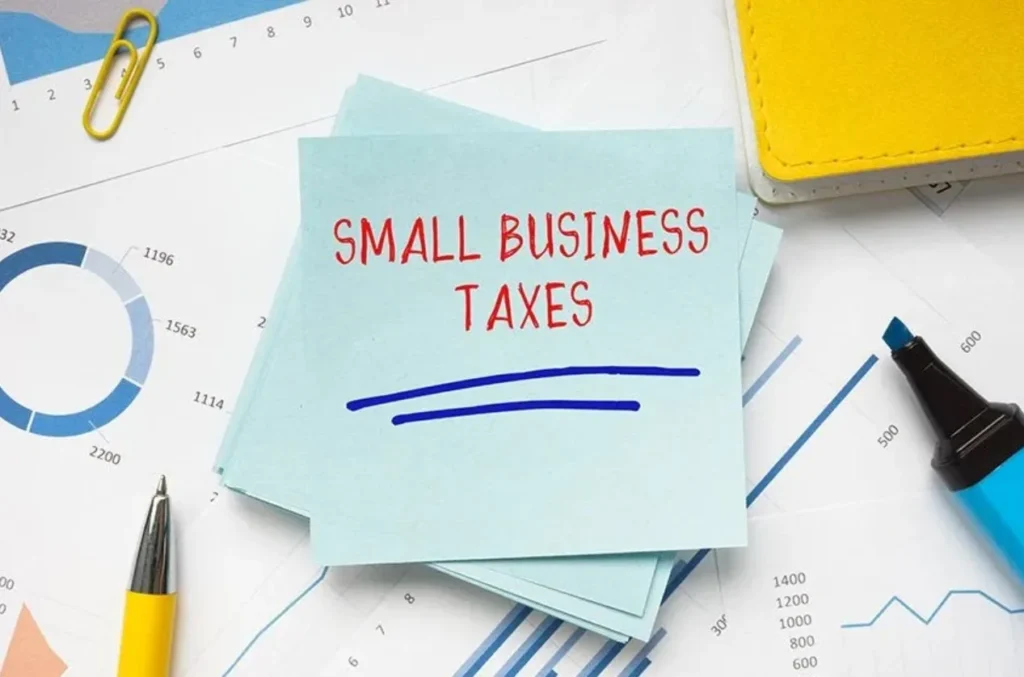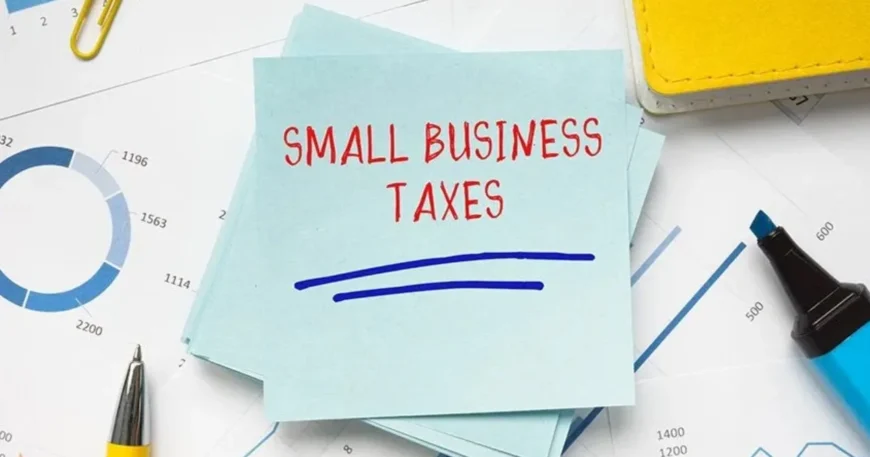Unlocking the Secrets of Small Business Tax Preparation: A Complete Guide for Your Business Tax Filing
Running a small business means managing more than just operations—it means understanding taxes, too. This article reveals essential tax strategies used by successful businesses and how Syed Pro tailors them to help you save time, stress, and money. Tax season can be a stressful time for small business owners. The intricacies of filing taxes, ensuring your business tax return is accurate, and understanding which deductions apply to your business are crucial to your financial well-being. This comprehensive guide will walk you through everything you need to know about preparing for tax filing, including how to handle your business return, business tax ID, and more. By the end, you’ll feel confident in managing your tax obligations effectively.
Understanding the Basics of Business Tax Filing
When running a small business, staying on top of taxes is vital. Every year, companies must file taxes and report their earnings to ensure they comply with federal and state tax regulations. Business tax filing typically involves submitting a tax return that details your company’s income, expenses, and deductions. These filings are crucial for avoiding penalties and ensuring your business stays in good standing with the IRS.

What Is a Business Tax Return?
A business tax return is a document businesses use to report income, expenses, and profits to the government. The specific forms you need to file depend on your business structure (sole proprietorship, LLC, corporation, etc.) and the nature of your income. For instance, sole proprietors typically file a Schedule C (Form 1040), while LLCs and corporations have more specialized forms such as Form 1120 (for corporations) or Form 1065 (for partnerships).
Why Is Accurate Business Tax Filing Important?
Filing your tax return accurately is essential for several reasons:
-
Avoiding penalties and interest: Incorrect filings can lead to fines or interest charges.
-
Maximizing deductions: Proper filing allows you to take advantage of all available tax deductions, lowering your taxable income.
-
Business credibility: Filing on time and correctly can help maintain a positive business reputation.
The Role of a Small Business Tax Accountant in Filing Taxes
Many small business owners are unsure about handling their tax filing independently. That’s where a small business tax accountant can be invaluable. These professionals are experts in tax laws and regulations, especially concerning small businesses.
How Can a Small Business Tax Accountant Help?
-
Ensure compliance with tax laws: Tax accountants are well-versed in federal and state tax laws, ensuring your business follows all the required guidelines.
-
Optimize deductions: An accountant will ensure that you take advantage of tax-saving opportunities, such as deductions for home office expenses or business vehicle use.
-
Reduce stress and save time: Hiring a tax accountant frees you from the complex and time-consuming tax preparation task.
Suppose you’re looking for tax preparation services nearby. In that case, hiring an experienced tax accountant can give you peace of mind and save you considerable time and energy during tax season.
What Is a Business Tax ID Number (TIN) and Why Do You Need It?
Every business needs a tax ID number, also known as a business tax identification number (TIN) or EIN (Employer Identification Number). This number is essentially your business’s Social Security number for tax purposes. You’ll need it to open a business bank account, apply for business loans, and file your returns.
When Do You Need a Business Tax ID Number?
-
Starting a business: If you’re launching a new business, apply for an EIN.
-
Hiring employees: An EIN is required if your business hires employees.
-
Certain tax filings: The EIN is necessary for returns, including forms 1120 and 1065.
Obtaining a business tax ID is relatively simple and can be done online through the IRS website. Applying for this number early in your business journey is crucial to avoid delays when filing your taxes.
How to Navigate Small Business Tax Preparation
Preparing taxes for a small business can be daunting, but breaking it down into manageable steps can help. Here’s a step-by-step approach to preparation:
Step 1: Gather Your Financial Documents
Start by gathering all necessary financial documents, such as:
-
Income records: Sales invoices, receipts, and bank statements.
-
Expense documentation: Business-related receipts, bills, and payroll records.
-
Previous tax returns will help ensure consistency and make it easier to complete your current return.
Step 2: Review Applicable Deductions
Small businesses have access to numerous tax deductions, including but not limited to:
-
Home office deduction: If you operate your business from home, you may qualify for a home office deduction.
-
Vehicle expenses: You can deduct the related costs if you use a vehicle for business.
-
Employee wages: Wages paid to employees are deductible.
Consult with your accountant to identify all applicable deductions.
Step 3: Complete Your Business Tax Return
Once you’ve gathered all the necessary information, it’s time to complete your tax return. Depending on your business structure, you may need to fill out a different form. This step can be complex, so many business owners ask professionals for assistance. A tax accountant can guide you if you’re unsure which forms to file.
Step 4: File Your Tax Return
After completing your return, file it with the IRS. Ensure that you file before the deadline to avoid late fees. If you cannot file on time, you may request an extension, but be mindful that any taxes owed will still be due by the original deadline.
Common Tax Filing Mistakes to Avoid
Even with the best intentions, mistakes happen. Here are some common filing mistakes that you should be aware of:
-
Filing under the wrong business entity: If you’re a sole proprietor but file as a corporation, you’ll face issues with the IRS.
-
Not keeping adequate records: Inaccurate or incomplete financial records can lead to errors in your return.
-
Missing tax deadlines: Filing late can result in penalties and interest charges.
Hiring a tax accountant can help prevent these mistakes and ensure that your filing is completed correctly.

Frequently Asked Questions
What is a business tax return?
A business tax return is a document filed with the IRS that reports a business’s income, expenses, and tax liabilities.
Do I need a business tax ID number (EIN)?
Businesses need an EIN to file taxes, open business bank accounts, and hire employees.
How can a tax accountant help my small business?
A tax accountant helps ensure compliance with tax laws, maximizes deductions, and reduces the stress and time of filing taxes.
What forms do I need to file for my small business?
Depending on your business structure, you must file forms such as Schedule C, Form 1120, or Form 1065.
What deductions can I claim for my small business?
You can claim deductions for business expenses like office supplies, travel, and employee wages.
How can I find a small business tax accountant near me?
Search for local tax accountants or use online platforms specializing in small business-tax preparation.
Conclusion: Prepare Your Business for Success with Proper Tax Filing
Tax season doesn’t have to be stressful for owners. By understanding the ins and outs of tax preparation, working with a professional tax accountant, and keeping accurate records throughout the year, you can ensure that your return is filed correctly and on time.
If you’re unsure where to start or need assistance filing, consider contacting Syed Professional Services for expert tax preparation and filing services. We help businesses like yours navigate the complexities of tax season so that you can focus on what matters most—growing your business.
Additional Tips for Small Business Tax Preparation
While we’ve covered the core aspects of filing, there are still a few additional tips to follow to ensure efficient preparation:
1. Plan and Keep Track Year-Round
Tax preparation isn’t just a once-a-year task. The best way to make tax season easier is to stay organized year-round. Please keep track of all your business income and expenses as they come in. Use accounting software or hire a bookkeeper to maintain accurate financial records. Regularly reviewing your finances ensures you won’t scramble to gather documents when tax season arrives.
2. Set Aside Money for Taxes
Many small business owners forget to set aside funds for taxes, which can result in a financial scramble when it’s time to pay. To avoid this, set aside a percentage of your monthly earnings to cover your tax obligations. This way, when filing time rolls around, you won’t be caught off guard by the amount you owe.
3. Stay on Top of Changing Tax Laws
Tax laws are constantly evolving, and staying updated can help ensure you’re taking full advantage of available deductions and credits. Regularly consult with your tax accountant to stay in the loop about new tax laws and their impact on your business.
4. Take Advantage of Tax Credits
In addition to deductions, several tax credits are available to small businesses. For example, the Small Business Health Care Tax Credit can help businesses that provide health insurance to employees. Other credits may be available depending on your industry and location.
5. Consider Quarterly Estimated Tax Payments
Small business owners may be required to make quarterly estimated tax payments instead of waiting until the end of the year to pay their taxes. This ensures you’re paying your taxes gradually, which can prevent large tax bills at the end of the year.

Conclusion: Make Tax Season a Breeze with Professional Support
Handling taxes for your small business can be overwhelming, but you can simplify the process with the right preparation and support. A solid understanding of business tax filing, knowing the importance of your return, and working with an accountant can help you confidently navigate the complex world.
At Syed Professional Services, we understand that every business is unique. Whether you’re seeking help with preparation or need ongoing advice to ensure your business stays compliant with tax laws, our team is here to assist you every step of the way.
How to Find the Best Tax Preparation Services Near You
Finding the right professional support can make all the difference when it comes to tax preparation. Here’s how you can go about locating the best tax accountant or service provider:
1. Research Local Tax Firms and Accountants
Start by researching local tax preparation firms or accountants in your area. A simple search for “tax preparation near me” should provide a list of qualified professionals specializing in business taxes.
2. Check Qualifications and Specializations
Not all accountants specialize in small business taxes, so it’s important to ensure that the professional you choose has experience with businesses similar to yours.
3. Read Reviews and Testimonials
Before choosing a tax professional, take the time to read online reviews and testimonials. Look for an accountant known for being responsive, knowledgeable, and trustworthy.
4. Ask About Services and Pricing
Tax accountants offer varying services, from basic tax return preparation to comprehensive strategies. Ensure the services offered align with your business’s needs.
5. Consider a Consultation
Once you’ve shortlisted potential accountants, schedule an initial consultation. A professional who can explain tax issues and provide practical advice is likely a good fit for your business.




